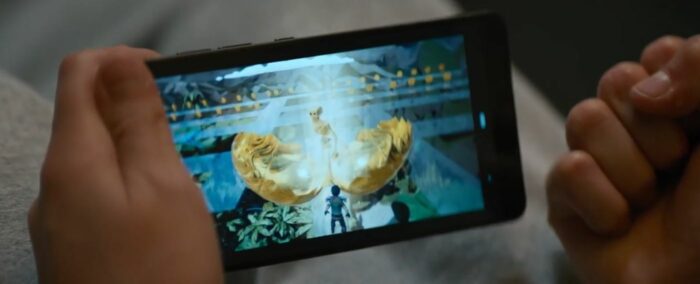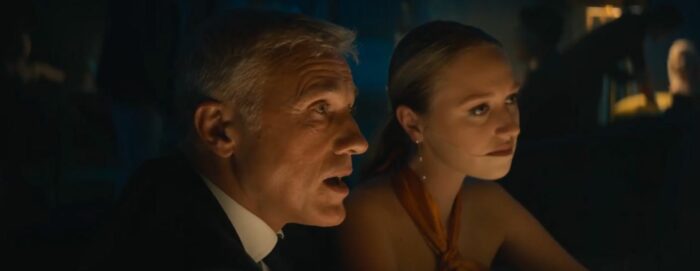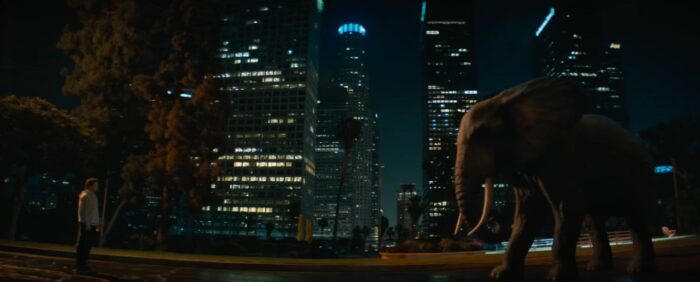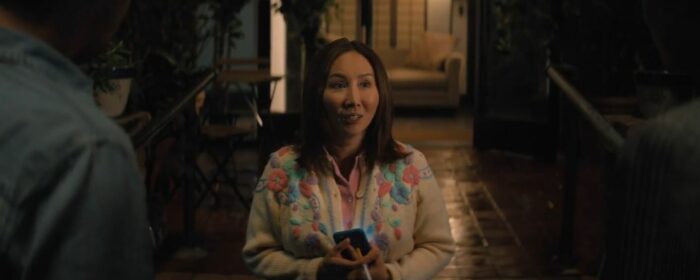The following contains spoilers for The Consultant Season 1
From the beginning, I’ve felt that The Consultant was aiming at a tone verging on Kafka—not through byzantine bureaucracy, to be clear, but in a certain kind of absurdist realism. Having now finished the whole season, I think that impression was on the mark in terms of the goals of this series, but unfortunately I continue to feel like it didn’t quite get there. Maybe the book is better; I can’t say I know.
There is a momentum that carried me through these eight episodes, and the main characters grew on me as the series progressed, even if I can’t quite say whether this resulted from merely getting used to them. There is something absurd (in a good way) about this story, where a consultant no one has ever met or heard of arrives to take charge of a company after the founder’s violent death, and everyone goes along because of course they do.
I questioned that a bit at first, but there is a nod in an early episode of The Consultant to the existence of some employees who quit. The others, whom we follow, stay through inertia and follow Patoff (Christoph Waltz) simply because he exudes the authority of one to be followed. He represents simply that, I think, even if the series alludes to mystical origins. I prefer to think he got Patti (Aimee Carrero) to do his bidding simply by asserting his will, and that there is a commentary here on how much we, as postmoderns, can secretly crave having someone to tell us what to do.

At the same time, though, it’s true that Patoff would seem to have a skeleton made of gold. The end of the season finale sees Craig (Nat Wolff) extracting a golden bone from the toe Patoff lost when he fell through the shattered glass floor at Compware, and this seems to confirm the wild story Frank Florez (Juan Carlos Cantu) told Craig when he went to Pomona.
Despite the ominous tone of that tale, however, I have to admit I continue to struggle to see the significance of the golden skeleton. I doubt this is a reference to Castlevania (though that’s there). Apparently, some people use the term in a business context, playing on the notion of having skeletons in one’s closet, but also this appears to be a gag The Yes Men pulled in 2005, when they got some Dow executives to pose with Gilda, the Acceptable Risk mascot (a golden skeleton). That reference fits, but it doesn’t go much of anywhere.
I continue to feel like there should be some big reference point that I’m missing, as though I should already know it—something from the Bible or mythology—but if it’s there, I don’t find it. Please let me know if I’m missing something obvious.

Maybe it’s almost better without a clear point of reference, though, insofar as the gold skeleton manages to function as an effective symbol anyway. I don’t know if we’re to think that Patoff was constructed in Pomona like some kind of golem, but that just feeds into a whole mass of things we still don’t know as The Consultant Season 1 comes to a close.
Was Patoff telling the truth about Milani (Gena Heylock)? My kneejerk reaction is to think he wasn’t, and that he somehow tricked her into amputations in order to sell her prosthetics, but it’s almost more interesting to consider that perhaps he was telling the truth to Craig about why he abducted her. Either way, we don’t find out.

How did Patoff get Tokyo (Henry Rhoades) to kill Sang Woo (Brian Yoon)? We can infer that this is what occurred, as The Consultant does allow us to see the meeting in a flashback where Sang ultimately hired Patoff to arrange his death and so on, but are we to infer something from the final scene of Tokyo managing to beat Level 316, where all other players had seemed to become hopelessly stuck? Some call 316 the “master number” and claim it holds great significance. Putting this together with the image of a golden skeleton recurring, should we be thinking that Tokyo is on his way to becoming the next Patoff… somehow? But that still doesn’t answer my initial question.
There is also the Records Room, which is certainly treated as though it possesses a mystical significance over the course of the season, but I think I’ve landed on it just being a records room, if one that is disturbingly thorough. Patoff says he needed Patti to complete Craig’s file, and one gets to feeling like these files may get deep into people’s personal lives, but I think we can just read that as a commentary on how businesses operate in our contemporary world, no matter how disturbed we may be by it.

The closing voiceover from Elaine (Brittany O’Grady) is terribly contrived. It is framed through her talking to the cops when she would definitely not be saying these things to the cops, but it drives home where The Consultant lands—that this was worth it. Say what you want about Patoff; he gets results.
And this would be that dark absurdity again, insofar as we have to recognize the truth of what Elaine says, but that’s built on the back of a way of valuing the world that hardly makes sense when you approach it directly. In this way, The Consultant almost functions as a critique of late capitalism, but it feels too ambivalent to follow it through.

Patoff gets to work only after the founder of the company is dead, to secure their legacy. Sang’s legacy includes a statue of him with a flaccid penis that people jokingly decorate. It includes a game his name was slapped onto that he played no role in creating and the death of an elephant released as a stunt (though it’s not clear if people know that).
And yet, Mama Sang (Gloria John) is proud of him. Patoff didn’t kill her; she’s been assimilated into this perverse system of value. Of course it’s the one we live in, meaningfully, and if we think back to Tokyo claiming the devil made him kill Sang, I guess I wonder if he was just paid a lot of money.
Everything lends itself to a mundane explanation except the skeleton made of gold, and maybe that’s best taken just as a symbol. Maybe we shouldn’t trust our eyes when Craig sees the toe. Maybe Patoff is just who he says he is, offering business people a way out and an eternal imprimatur of their legitimacy—registered with the U.S. Patent Office.


The only thing I didn’t see you mentioned is the Dante’s Inferno imagery. I’m not sure what it’s trying to say, but I definitely noticed it. (the painting at the Catholic service, and I feel like it popped up somewhere else too.)
enjoyed the recap, thanks.
Thanks! And yeah, that’s there. Not sure what to do with it exactly